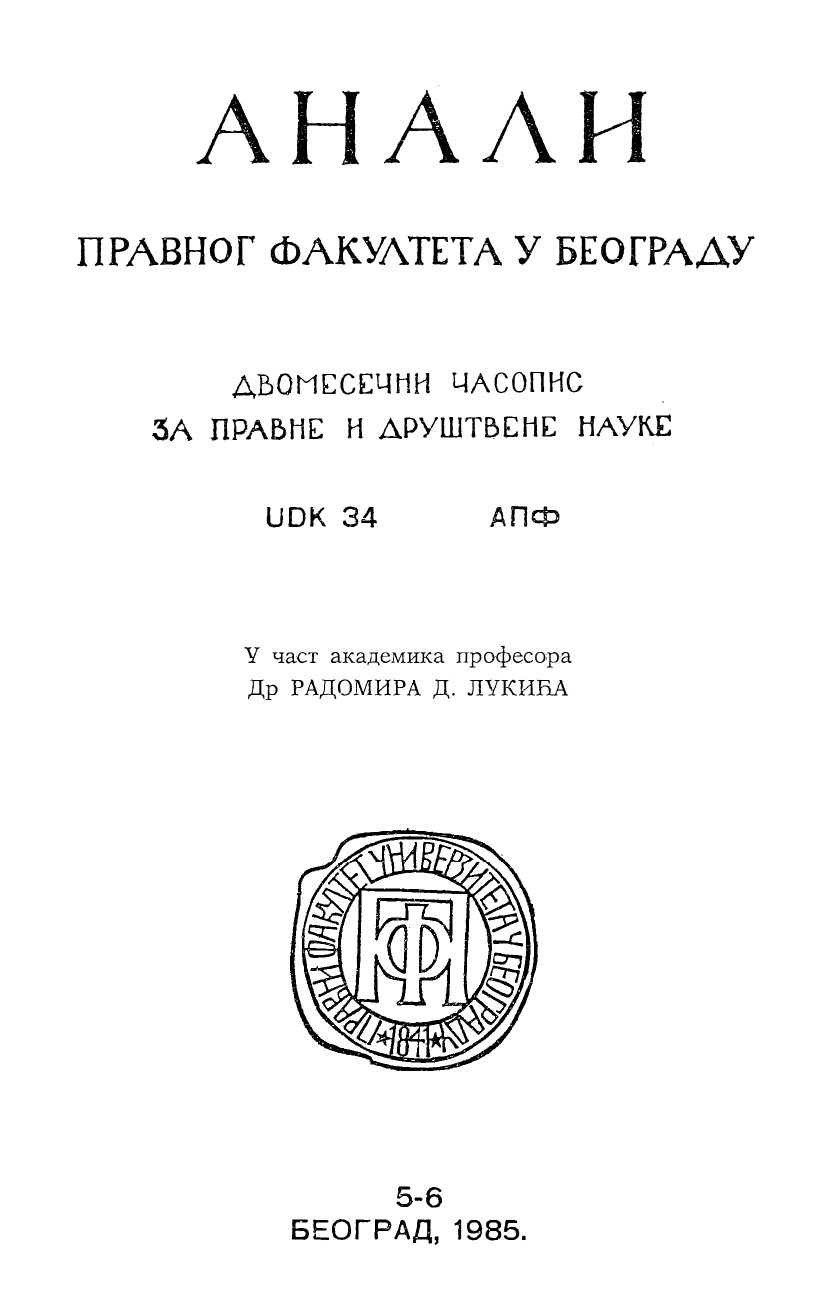ПРАВО НА ШТРАЈК И LOCK OUT У ФРАНЦУСКОМ ПРАВУ
THE RIGHT TO STRIKE AND LOCK-OUT IN FRENCH LAW
Author(s): Budimir KošutićSubject(s): Law, Constitution, Jurisprudence, Constitutional Law
Published by: Правни факултет Универзитета у Београду
Summary/Abstract: The author elaborates in his study the particularities of the right to strike and to lock-out in French law. He points at their historical development, as well as at their contemporary legal regime. The author stresses that after the enactment of the 1946 Constitution the right to strike has been recognized in France as an individual and collective right of workers, and not »as a simple fact which should be tolerated«. In addition to the above, the author of the present article deals with the originality of the French solution according to which the workers themselves may take part in a strike without the participation of the trade-union. In such a way the notion of »unauthorized strike« becomes superfluous in French law. Along the same lines the French law permits a strike with the occupation of the factory premises, which is not the case with the laws of other countries. However, if such occupation is performed also out of the work hours, such a strike is not permitted so that particularly difficult becomes the question of removing the workers from the premises of the factory. Namely, at the request of the owner (i.e. employer) the court may issue an order for chasing the workers out of the factory premises, although in practice French courts are rather cautious and not unified in implementing this measure. Moreover, there exist four tendencies in the relevant judicial practice. In addition to that, if the court issues such an order of final degree, the administrative authorities are under a duty to evaluate the conditions of relevant execution, and they are entitled also to deny the cooperation of public authority if they assess that there exists danger for the public order and security. The author also elaborates the question of lockout which has its specificities in French law, which is particularly true in cases of lockout, being permitted under law. At the end of the article the author points at the fact that efficient use of the right to strike in the class struggle depends also on the economic power of the working class and on the force of its trade-union and political organizing in general. According to the author, the emergence of the multinational companies considerably narrows down the conditions for initiating successful strikes. The working class therefore should find new ways of its struggle.
Journal: Анали Правног факултета у Београду
- Issue Year: 33/1985
- Issue No: 5-6
- Page Range: 614-622
- Page Count: 9
- Language: Serbian

